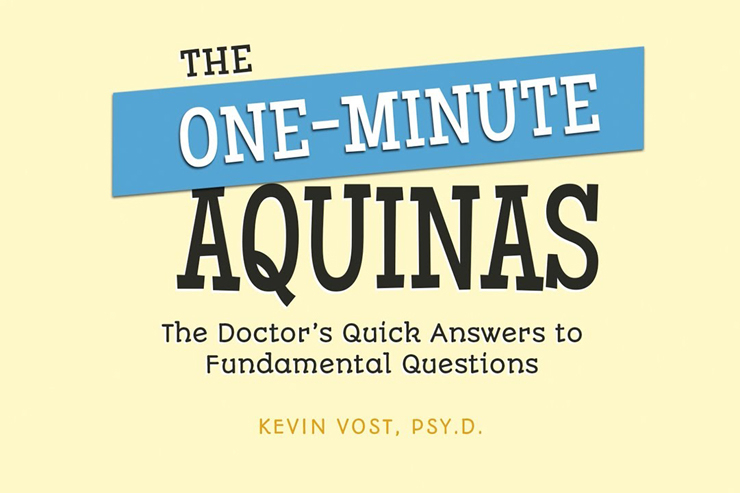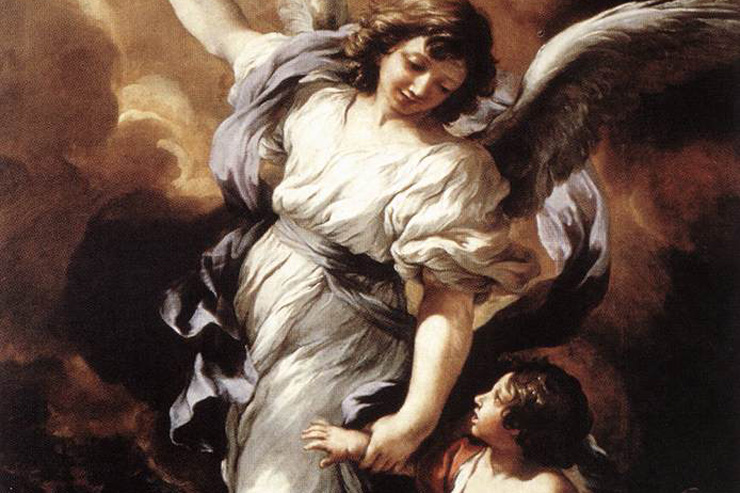 Imagine your son tells you he wants to become a priest. Would your heart soar and your soul praise God? Would you be torn; feeling happy he wants to serve God but lamenting the loss of potential grandchildren. Or would you pay for a prostitute in hopes of tempting him away from the priesthood? The last one is what St. Thomas Aquinas’ parents did.
Imagine your son tells you he wants to become a priest. Would your heart soar and your soul praise God? Would you be torn; feeling happy he wants to serve God but lamenting the loss of potential grandchildren. Or would you pay for a prostitute in hopes of tempting him away from the priesthood? The last one is what St. Thomas Aquinas’ parents did.
While many Catholic parents pray for their children’s purity and would rejoice to have a child enter the priesthood, St. Thomas’ family found mortal sin preferable. He was born the seventh child into an Italian royal family. They held him captive in their castle for about a year, hoping he would change his mind.
It was St. Thomas’ brothers that procured the services of a prostitute to lure Thomas away from his loftier pursuits. He resisted and instead, pursued true happiness. Not just in the next world but in this world also. For as he later related in his writings, sin never leads to happiness in either world.
St. Thomas kept up his resolve until his family finally released him from imprisonment to become a Dominican priest. In that role, St. Thomas found happiness in union with God.
A Great Intellect
It’s widely believed, even in atheist circles, that St. Thomas is among the smartest men who ever lived; perhaps the smartest. St. Albert the Great (1193-1280), patron of scientists, who is remembered for his keen intellect, stopped writing after reading his student St. Thomas’ writing, stating it could not be equaled or surpassed. St. Thomas’ writings are immense. For instance, his Summa Theologica, an unfinished work of the last seven years of his life is 1,500,000 words.
“Since St. Thomas’ passing on March 7, 1274, more than seven hundred years of popes, scholars, and saints have agreed that his wisdom and powers, rather than being limited, were so extraordinary that he is called the Angelic Doctor,” writes Kevin Vost, Psy.D in One-Minute Aquinas: The Doctor’s Quick Answers to Fundamental Questions. He explained that St. Thomas is among the giants of western philosophy, ranked even above Socrates and St. Augustine. Quoting Pope St. Pius X, he said that, “in just one year, a man can derive more profit from the works of St. Thomas Aquinas than from a lifetime studying the works of others.”
According to Vost, St. Thomas used his gift of intellect to teach reason in God’s world to find our way to real wisdom and ultimately happiness. Everyone wants to be happy, but not everyone is going to read all that St. Thomas has to tell us on that topic. Vost provides a shortcut by culling some of the gems of St. Thomas’s teaching, including his thoughts on how to attain happiness in this world.
The One Thing We All Want
Happiness is the ultimate human pursuit. Vost explains that St. Thomas shows us that happiness on earth, albeit imperfect, can be attained by finding what will completely fulfill us. Using the writings of the Church Fathers, Scripture, and the best of human philosophers, St. Thomas taught that human nature is a combination of body and soul, but it is the soul that makes a difference between a living body and a corpse. St. Thomas explained that we have intellectual souls. The intellect of our souls, he says, is how we are made in the image and likeness of God.
According to St. Thomas, the intellect seeks to know what is true and the will seeks to know what is good. “The intellect discerns what is good and the will acts to get it.” The way we choose determines if we are masters of our own actions and deserving of praise or blame. The key, according to St. Thomas, is motivating our will to make the right choices. “When we train ourselves to become mindful of higher goods, the lesser goods of the world seem less enticing and have less impact on us,” Vost writes. Perfecting our choices entails practice, St. Thomas said, but beyond our own effort is the grace of God and the gifts of the Holy Spirit. Those seven gifts as noted in Isaiah 11:2 are wisdom, understanding, counsel, fortitude, knowledge, piety, and fear of the Lord.
Our Efforts, God’s Grace
“He [St. Thomas] noted that although we cannot perfect ourselves or obtain perfect happiness without the grace of God, God does expect some cooperation on our part,” writes Vost “Grace is a gift from God that not only perfects the powers of the soul as the virtues do, but also permeates and transforms the very essence of the human soul from which the powers flow. St. Thomas stated that the way to make good choices and consent to God’s supernatural graces is to build good, Godly habits. Another name for good habits is virtues. By possessing virtues, it becomes easier to do the right things. St. Thomas taught that virtues are like oars with which we row toward good and the gifts of the Holy Spirit are like God-given winds filling our sails.
Virtues move one towards good while vices are a lack of good known as sin. It is sin that becomes a barrier to two kinds of happiness: “the natural, limited happiness on earth and the perfect, eternal happiness in heaven with God.” He contended further that God’s lawful instruction and assistance of grace work together with virtues in order to lead us to human happiness.
Given that St. Thomas is perhaps the smartest man that ever lived, his advice on how to achieve happiness is surely superior to any of the plethora of self-help books. And given that he puts God and goodness at the center, St. Thomas has laid out a path that leads to both happiness and to heaven.
If you liked this article, please share it with your friends and family using both the Recommend and Social Media buttons below and via email. We value your comments and encourage you to leave your thoughts below. Thank you! – The Editors














